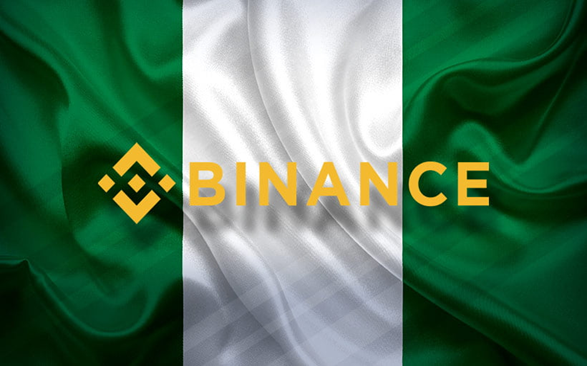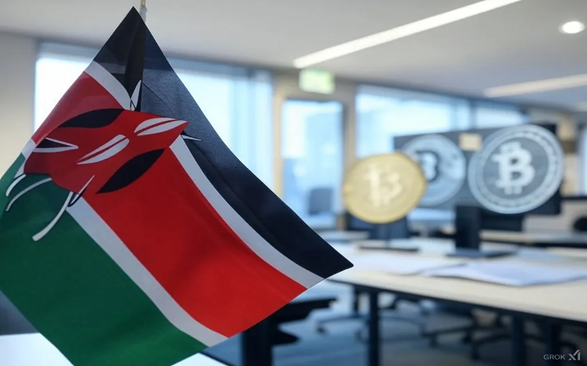by Jude Ayua
The Nigerian government, through its Federal Inland Revenue Service (FIRS), has filed a suit against Binance Holdings Limited (Binance). The FIRS requested the Federal High Court (FHC) in Abuja to order Binance to pay $79.5 billion and ₦231 million for economic losses allegedly caused by its operations in Nigeria, along with $2 billion in income tax for 2022 and 2023. The suit, marked FHC/ABJ/CS/1444/2024, was brought before Justice Inyang Ekwo of the FHC on 11 February 2025.
As reported by Nairametrics, the suit includes demands for a 10 percent penalty for nonpayment of income tax from 1 January 2023 and a 26.75 percent interest rate from 1 January 2024.
Allegations against Binance
The suit also accused Binance and its executives, Tigran Gambaryan and Nadeem Anjarwalla, of failing to register with the FIRS and causing economic losses to Nigeria, citing breaches of Nigeria’s Companies Income Tax (CIT) Act, the FIRS Act, the CBN Regulatory Framework for Mobile Money Services, and the CIT Significant Economic Presence (SEP) Order. The SEP Order, signed in May 2020, requires foreign companies with significant economic presence in Nigeria to pay taxes.
In an affidavit deposed to by Jimada Mohammed Yusuf, a member of the FIRS Special Investigation Team, the deponent claims Binance operated in Nigeria for over six years without registration and had 386,256 active Nigerian users with a trading volume of $21.6 billion in 2023. The affidavit also accuses Binance of offering financial services without licenses, noncompliance with the Money Laundering Act, and providing currency speculation services without authorization. Binance has denied all charges.
The FIRS, represented by a Senior Advocate of Nigeria, Kanu Agabi (SAN), seeks declarations that Binance is liable to pay corporate income tax and file income tax returns for 2022 and 2023. The court has granted a request for substituted service after attempts to serve Binance directly were unsuccessful. The suit was adjourned to 3 March 2025.
Read also: Nigeria vs. Binance: Gambaryan’s “untold story” and national concerns.
Possible factors behind the suit
The Nigerian government first accused Binance of contributing to Nigeria’s economic instability in late 2023, claiming Binance facilitated money laundering and manipulated the Naira. In February 2024, Nigeria’s Economic and Financial Crimes Commission (EFCC) obtained a court order compelling Binance to provide information on its Nigerian users. In March 2024, the FIRS came into the picture for the first time, filing tax evasion charges against Binance, accusing the company of defaulting in tax payment and filing tax returns. In June 2024, the FIRS eventually dropped the charges against Gambayan and Nadeem Anjarwalla, allowing Binance to be represented by a local representative.
In January 2024, Binance’s Head of Financial Crimes Compliance, Tigran Gambaryan, arrived in Nigeria following an invitation from a committee of Nigeria’s National Assembly in December 2023. After a meeting between EFCC officials and Binance staff, Gambaryan fled the country, alleging the officials had demanded a bribe of $150 million.
Gambaryan returned to Nigeria in February 2024 along with Anjarwalla, Binance’s Regional Head for East Africa, following another invitation from Nigeria’s National Security Adviser (NSA), Nuhu Ribadu, who convinced Gambaryan of an amicable settlement with Binance. Gambaryan and Anjarwalla were unexpectedly detained in the NSA’s house with heavy security guard on the claim of a civil resolution of the charges against Binance. Reportedly, Anjarwalla eventually escaped, leading to increased scrutiny and harsher treatment of Gambaryan who was detained for approximately eight months. With the intervention of the US government, the EFCC dropped all charges against Gambaryan and released him in October 2025. The suit against Binance and Anjarwalla remained.
On February 14, in a post on X Gambaryan, narrated his experience in detention in Nigeria. This was preceded by WIRED’s report on 10 February detailing the “untold story” of Gambaryan’s “descent into Nigerian prison.” In his post, Gambaryan alleged that Nigerian officials demanded $150 million to be paid into their private crypto wallets, to drop charges against Binance. Other allegations bordered corruption, abuse of power, and diplomatic fallout between the Nigerian and United States governments.
The Government of Nigeria wrote on X on the same day following Gambaryan’s allegations, to “categorically deny the retaliatory claims made by Mr. Gambaryan against Nigerian officials,” urging the public to disregard his “false accusations.” The government narrated its own side of the story, claiming Binance had offered a bribe of $5 million which the government officials rejected. Considering the timing, is the approximately $81.5 billion court-initiated demand by Nigeria a retaliation to Gambaryan’s recent claims against Nigerian government officials? Meanwhile, the officials named in his post all denied the claims against them. The government, however, admitted the inhumane conditions under which Gambaryan said he was kept. He is currently pursuing human rights enforcement actions against the government.
Will there be any end to this?
Read also: Nigeria to set Binance Executive Tigran Gambaryan free; drops all charges against him.
Jude Ayua is a policy analyst at CAB. A lawyer, Jude is an associate at Infusion Lawyers where he is a member of the Blockchain & Virtual Assets Group. He is also a member of the Policy & Regulations Committee of the Stakeholders in Blockchain Technology Association of Nigeria (SiBAN). Jude reports and writes on crypto policy and regulations. jude@infusionlawyers.com
Discover more from Crypto Asset Buyer
Subscribe to get the latest posts sent to your email.





